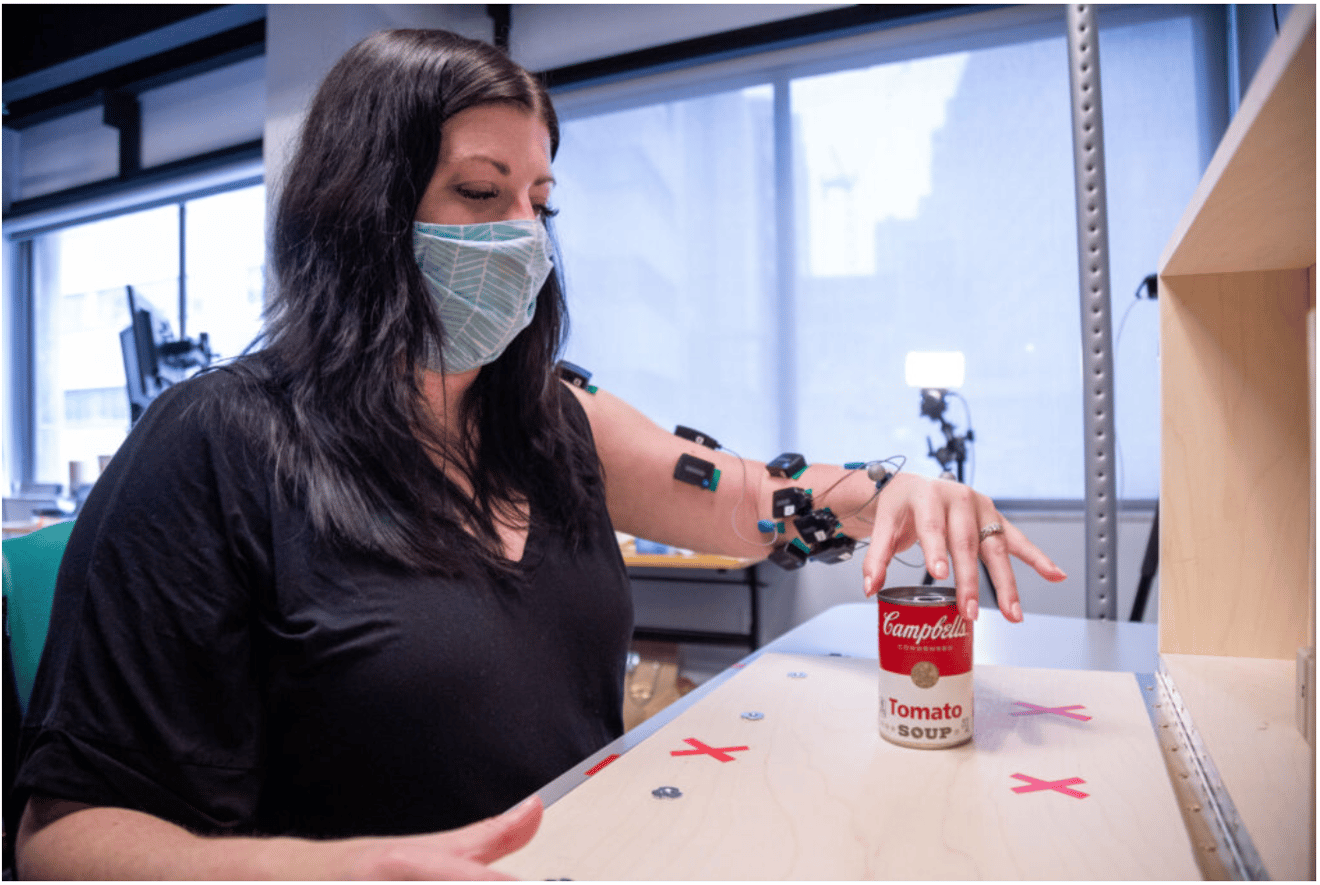Medical devices
Spinal cord stimulators could help stroke patients move their arms again
(Tim Betler/UPMC and Pitt Health Sciences)
Stroke patients could regain motion in their arms and hands with the help of spinal cord stimulators, a study published Monday in Nature Medicine suggests.
Stimulating the top part of the spine is a process that has long been used for chronic pain treatment, and it's recently been explored as a therapy for patients paralyzed by spinal cord injuries. But it's the first time these devices are being used to treat stroke patients, my colleague Lizzy Lawrence writes.
Since strokes weaken the connection between brain cells and spin spinal circuits, researchers wanted to test what happened if they tapped into what remains of that connection. They'd previously tested the system on paralyzed monkeys, but launched a small trial with two patients in 2021.
"These people can kind of still move their arm, but not functionally," Marco Capogrosso, lead author on the study, said. "The idea was, let's leverage what is existing there and instead of stimulating the muscle, try to amplify these circuits."
The patients demonstrated an improvement in mobility even when the stimulator was off, "proving that we can really have a long-term effect," co-author Elvira Pirondini, a neuroengineer at the University of Pittsburgh, said. Read more from Lizzy here.
Artificial intelligence
Maverick's Ambar Bhattacharyya on ChatGPT
I recently chatted with Ambar Bhattacharya and Prateesh Maheshwari, managing directors at Maverick Ventures, which has earlier-stage venture and growth funds primarily focused on health. Bhattacharya, who was an early employee of Minute Clinic before its sale to CVS, said Maverick's keen on in investments in generative AI that can make both the clinical and non-clinical sides of health care more productive.
"The questions we're asking ourselves and all our portfolio companies [are], with this tool ahead of you, where can you create new content and interactive new conversations? How do you think that can change the cost of engagement? How do you think that can change the cost of a follow-up?…Could this be a way to do it better, faster, more consistently?" (Maverick recently invested in MosaicML, a company that aims to make AI and machine learning more accessible to other businesses.)
There are still potential hurdles. "In health care, you have to be extremely extremely careful about how one interacts with a patient, or a family member, so that one is is very comfortable with that and really understanding what's in that model," he said.
Zeroing in on a viable business model is also a challenge. "These models, I think, will generate ways to do things better, faster and cheaper. [But] how does that get incorporated into the healthcare workflow? How does that get incorporated into a lot of the existing technology stack, whether that's electronic medical record claim processing engines, population health management tools, etc.?"
telehealth
What virtual care means for trans health
The relaxation of telehealth reimbursement rules and interstate licensing requirements during the pandemic — along with an explosion of investments in the technology — paved the way for companies like Plume to grow their operations. The startup offers trans people a way to receive hormone replacement treatment from their homes. But as Time's Philip Elliott points out, the looming end of the public health emergency declaration, along with a barrage of state policies designed to restrict trans health care, could again threaten their access to gender-affirming care.
No comments